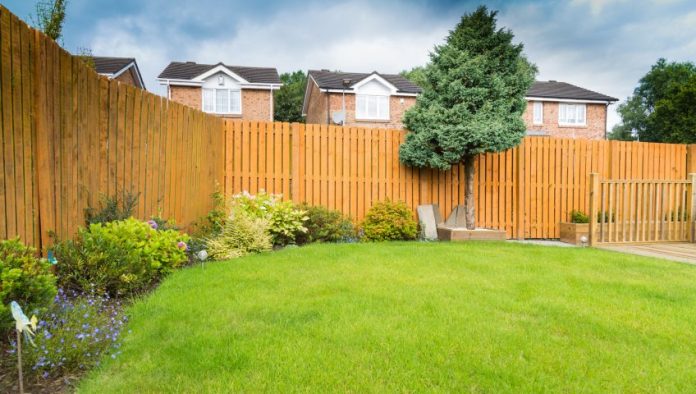The wide variety of fences available can make it difficult to choose the right one for your garden. The fence you choose will not only affect the appearance of your garden but also its security and functionality. Any reputable landscaper, such as AKR Landscapes Fencing, can provide a wide range of fencing options to suit diverse preferences and needs. This article will help you decide which type of fence is right for your garden.
Wooden Fencing
The classic wood fence is timeless and offers natural beauty. The versatility of the wood allows for a variety of styles and heights. It can be used in almost any garden.
Types of Wooden FencingPicket Fencing
Picket fences are perfect for a traditional, charming look. In front gardens, it is used to create boundaries without blocking views. Picket fences tend to be low-rise and have vertical boards (pickets), which are evenly spaced and attached to horizontal rails.
Panel Fencing
Picket fencing is less secure and more private than panel fencing. Solid panels are ideal for gardens. Panel fencing comes in different styles, such as close board and overlap panels, which offer varying degrees of durability and aesthetics.
Trellis Fencing
Trellis fencing can be used alone or in combination with other fencing types. The lattice frame supports climbing plants and adds height to your garden.
Advantages of Wooden Fencing
- Aesthetic Appeal: Wood is a natural material that looks great in garden landscapes.
- Customisable: Wooden fences are available in a variety of colours to suit your garden.
- Variety: There are many styles and designs available.
Disadvantages of Wooden Fencing
- Maintenance: Wooden fences need regular maintenance including staining and painting.
- Durability: If not maintained properly, they can be vulnerable to rot and pests.
Vinyl Fencing
Vinyl fencing is also called PVC fencing. It’s a modern option to the traditional wooden fence. The durable plastic material is low maintenance and offers a long-lasting solution.
Vinyl Fencing TypesPrivacy Fencing
Privacy fencing is made up of solid, tall panels that offer privacy and security. This is perfect for gardens in which you wish to create a private area.
Picket Fencing
Vinyl picket fences mimic the classic look and feel of wooden pickets but offer the durability of vinyl as well as low maintenance.
Decorative Fencing
Vinyl decorative fencing is available in lattice or scalloped patterns, which add an ornamental touch while still maintaining the durability of vinyl.
Advantages of Vinyl Fencing
- Low maintenance: Vinyl fences do not require staining or painting and are easy to maintain.
- Durability: It is resistant against rot, pests and weather damage.
- Long-Lasting: They can last for many years with little maintenance.
Disadvantages of Vinyl Fencing
- Cost: Vinyl fencing is more expensive than wooden fencing.
- Aesthetic limitation: Some people believe that vinyl lacks warmth and the natural appearance of wood.
Metal Fencing
Metal fencing is known to be strong, durable, and secure. Metal fencing is available in a variety of materials including steel, aluminium, and wrought iron, each with unique benefits.
Types of Metal FencingChain Link Fencing
Chain-link fencing is an affordable and durable solution that’s often used to create boundaries and provide security. The fence is made up of metal wires interwoven in a diamond-shaped pattern.
Wrought Iron Fencing
The intricate designs on wrought iron fences give it an elegant appearance. Front gardens are often decorated with wrought iron fencing to add sophistication.
Aluminium Fencing
Aluminium fencing has the appearance of wrought-iron, but is lighter and requires less maintenance. It’s resistant to corrosion and rust, so it is suitable for all climates.
Advantages of Metal Fencing
- Durability: Metal fences can withstand extreme weather conditions.
- Security: Due to their height and strength, they provide excellent security.
- Low Maintenance Most metal fences need minimal maintenance. This is especially true for aluminium and galvanised iron.
Disadvantages of Metal Fencing
- Cost: Metal fencing of high quality can be costly.
- Aesthetic: Metal fences can be less aesthetically pleasing than wood or vinyl.
Composite Fencing
Composite fencing is a mixture of wood fibres with plastic. It offers a natural appearance of wood while offering the low maintenance of vinyl.
Types of Composite FencingSolid Boards
Similar to vinyl or wooden panel fencing, composite solid boards offer excellent privacy and security. They are available in a variety of colours and textures that mimic natural wood.
Slatted Fencing
Composite fencing with horizontal or vertical slats offers a modern look, while still allowing for airflow and visibility.
Advantages of Composite Fencing
- Low maintenance: Composite fences are low-maintenance and easy to maintain.
- Durability: Resistant to pests and weather damage.
- Variety of styles and colours: Composite fencing is available in a variety of colours and styles to complement any garden design.
Disadvantages of Composite Fencing
- Cost: Composite fencing is more expensive than wood fences.
- Temperature Sensitivity: Some composite materials will expand or contract as the temperature changes.
Conclusion
The best fence for your garden will depend on your needs, budget, and preferences. Vinyl fencing is low-maintenance and durable, whereas wooden fencing has a natural beauty. Metal fencing offers security and strength. Composite fencing combines wood and vinyl to create the perfect combination.
Before making a choice, consider factors like the intended use of the fence, desired privacy and security levels, and maintenance requirements. Your garden fence will enhance the beauty, functionality and value of your outdoor area for many years with the right choice.




















